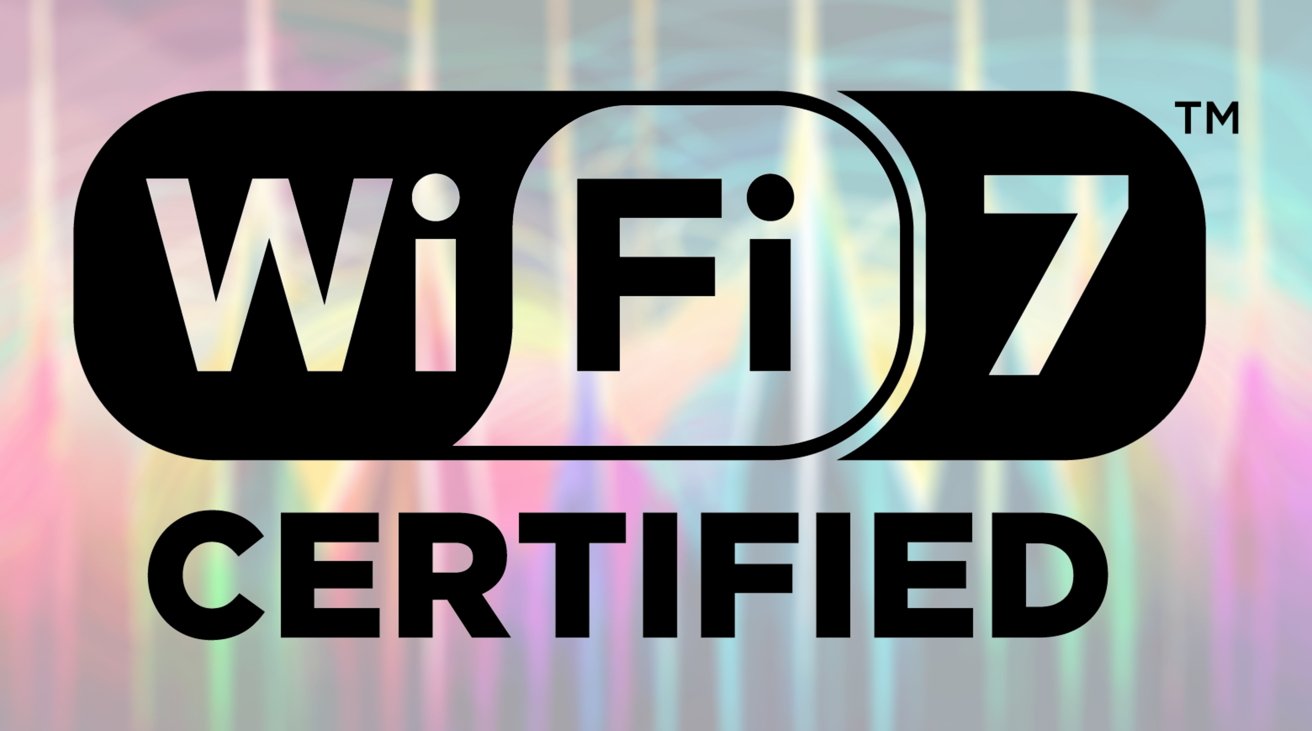Wi-Fi 7 spec finalized with promises of high-speed wireless networking
Two years after it debuted, the Wi-Fi Alliance has finalized the specification for Wi-Fi 7, and has started to certify hardware that is compatible with the high-speed connectivity standard.

Wi-Fi 7
After being worked on for a number of years, the Wi-Fi Alliance has formally introduced Wi-Fi 7. The launch now means devices can be labeled as compatible with the new variant of Wi-Fi connectivity, and perhaps tempt consumers with faster connections.
Wi-Fi 7 will use 320MHz channels on the 6GHz band, with the wider channels able to support high levels of throughput and multi-gigabit connection speeds. Support for Multi-Link Operation enables for devices to transmit and receive data simultaneously over multiple links.
Support for 4K QAM allows for 20% higher transmission rates than 1024 QAM, with the 512 Compressed Block Ack also improving efficiency by reducing overheads. There's also improvements to spectrum resource scheduling, Triggered Uplink Access for latency-sensitive streams, and support for Emergency Preparedness Communication Services.
Along with existing Wi-Fi uses, the Wi-Fi Alliance reckons that Wi-Fi 7 will be useful in a number of new use cases, such as multi-user AR and VR, 3D training, industrial IoT, automotive, and for gaming.
It is expected there will be more than 233 million devices supporting Wi-Fi 7 shipping in 2024, with the figure reaching 2.1 billion by 2028. Companies including Broadcom, CommScope Ruckus Networks, Intel, MaxLinear, MediaTek, and Qualcomm will be among the first to offer supportive hardware using the standard.
While Apple isn't mentioned among the first wave of hardware producers supporting the standard, it is almost certain to do so at some point. For the moment, there is less of a need for Apple to use it, at least until there is sufficient networking infrastructure in the world supporting it.
"The introduction of Wi-Fi CERTIFIED 7 marks the emergence of the latest generation of Wi-Fi and will be an accelerant to mass adoption of Wi-Fi 7," said Kevin Robinson, president and CEO of the Wi-Fi Alliance.
"This certification underscores our relentless commitment to delivering cutting-edge technology that redefines the way users experience Wi-Fi, providing faster speeds, improved efficiency, and increased reliability which expand the horizons of what is possible through Wi-Fi."
It's not clear when Apple will bring Wi-Fi 7 to its products.
Read on AppleInsider

Comments
Are there any WiFi 7 client/server products available?
I suppose I feel somewhat vindicated skipping WiFi 6 altogether. Truth be told, WiFi 5 is still serving me quite well, at least on the 5 GHz band. My biggest issues are the way-too-many 2.4 GHz devices that are still battling for bandwidth on overly congested channels. From what I can tell nothing in WiFi 6 or WiFi 7 (or Thread) really solves the 2.4 GHz congestion problem. Product vendors probably need to leave 2.4 GHz behind, at least for chatty clients and servers, especially for things like cameras, and leave the 2.4 GHz band open for simple IoT devices.